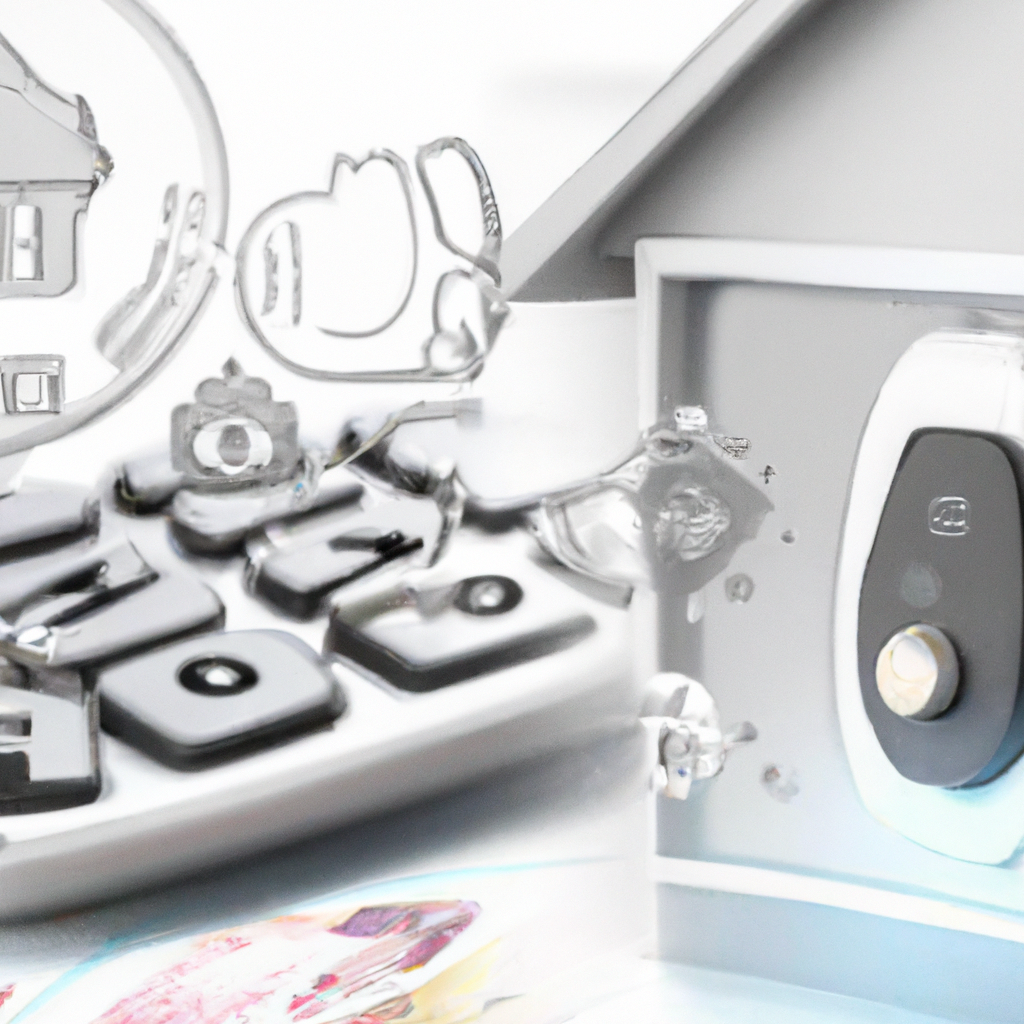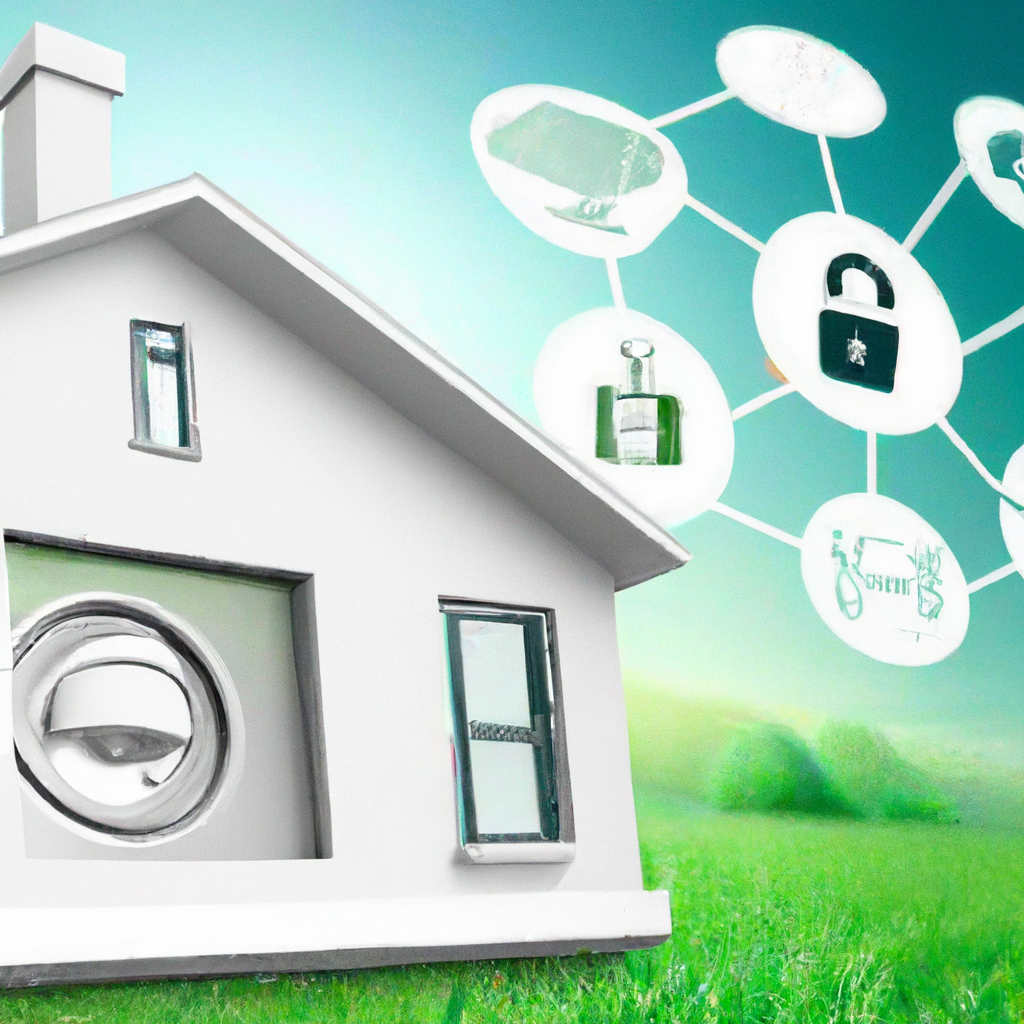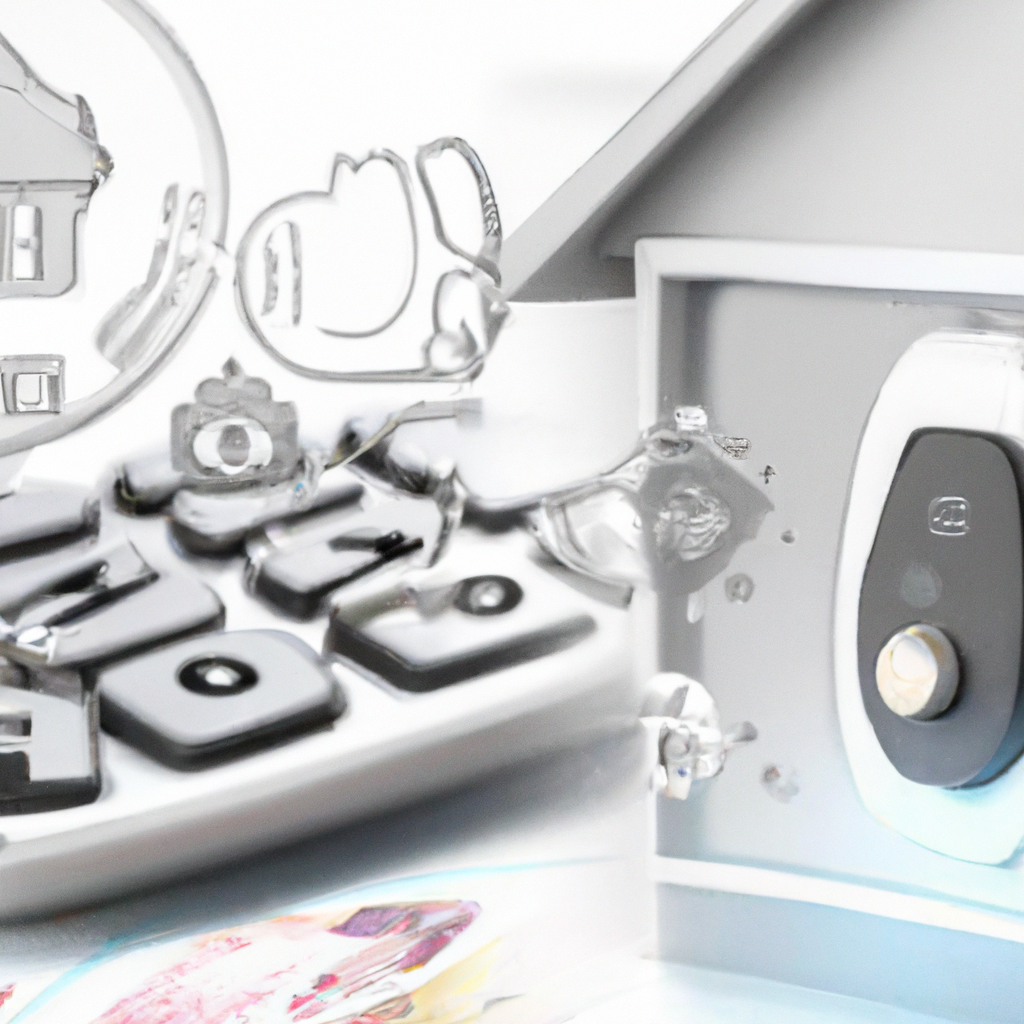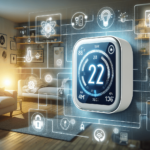Imagine having a home security system that not only keeps you and your loved ones safe, but also saves you money. With the rise of smart home technology, the cost savings associated with smart home security systems are becoming increasingly attractive. From energy efficiency to insurance discounts, these systems offer a range of benefits that not only provide peace of mind, but also put extra cash back in your pocket. Discover how investing in a smart home security system can lead to long-term financial savings and a heightened sense of security.

Reduced insurance premiums
Insurance discounts for having a smart home security system are one of the most compelling cost savings associated with this technology. When you have a smart home security system installed, you become a lower risk for insurance companies. This means that they are more likely to offer you discounted rates on your insurance premiums. By investing in a smart home security system, you not only protect your home and family but also save money in the long run.
Protection against property damage
Early detection and prevention of fires
One of the biggest threats to any home is fire. With a smart home security system, early detection and prevention of fires become possible. These systems are equipped with smoke detectors and sophisticated sensors that can detect smoke or heat anomalies. In the event of a fire, the smart home security system can immediately send alerts to the homeowner and emergency services, significantly reducing damage and potentially saving lives. By preventing fires from spreading, not only is the safety of your family enhanced, but also the costs associated with firefighting, property restoration, and potential relocation are minimized.
Mitigation of water damage
Water damage can lead to significant financial loss, whether it’s from a burst pipe, leaky faucet, or flooding. Smart home security systems can monitor for water leaks and abnormal moisture levels, sending timely alerts to the homeowner. By detecting water leaks and taking immediate action, you can prevent costly damage to your home’s structure and belongings. The early mitigation of water damage through a smart home security system can potentially save you thousands of dollars in repair and restoration costs.
Preventing break-ins and theft
The fear of burglary is a significant concern for many homeowners. Smart home security systems provide peace of mind by deterring potential burglars and preventing break-ins and theft. These systems include features such as motion sensors, door/window sensors, and video surveillance, which can be monitored remotely by the homeowner. If an intruder is detected, the system can immediately notify the homeowner and authorities, increasing the chances of catching the perpetrator and minimizing losses. By preventing break-ins and theft, you save not only on the cost of stolen items but also on the emotional toll and potential increased insurance premiums.
Energy efficiency
Optimized heating and cooling systems
Smart home security systems can integrate with your heating and cooling systems, allowing for optimized energy usage. By connecting your thermostat to the security system, you can remotely control and schedule temperature adjustments based on your lifestyle and occupancy patterns. This level of automation ensures that your heating and cooling systems only operate when needed, reducing energy waste and ultimately lowering your utility bills. By effectively managing your HVAC system, you can save a significant amount of money on your monthly energy expenses.
Energy-saving lighting controls
Another way smart home security systems contribute to energy efficiency is through energy-saving lighting controls. These systems allow you to automate lighting schedules and control lights remotely, eliminating energy wastage when lights are accidentally left on. Additionally, motion sensors can be integrated into the security system, turning lights on and off based on occupancy, further reducing unnecessary energy consumption. By implementing smart lighting controls, you not only save money on electricity bills but also reduce your overall environmental impact.
Remote monitoring and control
Convenience and savings through remote access
One of the major advantages of smart home security systems is the ability to remotely access and control various aspects of your home. Whether you’re at work, on vacation, or simply away from home, you can monitor and control your security system through a smartphone app or web interface. This remote access allows you to view live video feeds, receive real-time alerts, and even control devices such as door locks, lights, and thermostats. By having complete control and visibility over your home, you can make adjustments and manage your security system efficiently, saving time, effort, and potentially money.
Monitoring electricity usage
Smart home security systems offer the ability to monitor your electricity usage, providing you with valuable insights into your energy consumption patterns. By understanding how much energy is being used and when, you can identify areas where energy is being wasted. This knowledge empowers you to make informed decisions on how to reduce energy consumption and optimize usage. For example, if you notice that your electricity usage is higher during certain times, you can adjust your habits and take steps to minimize energy waste during those periods. By actively monitoring and managing your electricity usage, you can potentially reduce your energy bills and make significant cost savings in the long run.

Lower maintenance and repair costs
Early identification of equipment malfunctions
Smart home security systems are designed to monitor the health and performance of various devices and components in your home. By continuously monitoring data, these systems can detect any abnormalities or malfunctions in your equipment. Whether it’s a faulty HVAC system, a malfunctioning appliance, or a failing water heater, early identification of equipment malfunctions can save you from costly repairs or replacements. By addressing issues promptly, you can prevent further damage and avoid potential safety hazards, leading to significant cost savings in the long term.
Reduced need for frequent repairs
Regular maintenance and repairs are an inevitable part of homeownership. However, by investing in a smart home security system, you can reduce the frequency of repairs needed. Smart home security systems can provide proactive notifications when maintenance is required for certain devices or equipment. Whether it’s changing the air filter in your HVAC system or conducting routine inspections on your security cameras, these reminders can help you stay on top of your maintenance tasks and prevent smaller issues from escalating into more significant problems. By taking a proactive approach to maintenance, you can extend the lifespan of your equipment and minimize the need for expensive repairs.
Advanced threat detection
Early warning of potential security breaches
Smart home security systems are equipped with advanced sensors and technology that can detect potential security breaches before they occur. These systems can identify suspicious activities, such as someone attempting to gain unauthorized access or tamper with doors or windows. Upon detection, the system immediately sends alerts to the homeowner and authorities, giving you the opportunity to respond quickly and prevent any potential security threats. By having early warning capabilities, smart home security systems help reduce the risk of burglary, vandalism, and other criminal activities, potentially saving you from financial losses and the emotional distress associated with such incidents.
Reduced risk of vandalism
Vandalism can have a significant financial impact, especially if it results in damage to your property or belongings. Smart home security systems act as a deterrent against vandalism by providing round-the-clock surveillance and real-time monitoring. The presence of visible security cameras and signage alone can discourage potential vandals from targeting your home. In the event that vandalism does occur, the video footage captured by the security system can be crucial evidence for the authorities, increasing the chances of identifying and prosecuting the perpetrators. By reducing the risk of vandalism, you not only save money on repairs but also protect the value and appearance of your property.

Extended equipment lifespan
Smart home security systems prolong the lifespan of devices
Investing in a smart home security system can actually extend the lifespan of your devices and equipment. By integrating and automating various systems, such as lighting, heating, and cooling, you can reduce wear and tear on these devices. For example, by optimizing temperature settings and preventing constant cycling of HVAC systems, you can help them operate more efficiently and experience less strain. Similarly, by automating lighting schedules and adjusting brightness levels, you can prolong the lifespan of your light bulbs. By taking steps to minimize unnecessary usage and optimize the performance of your devices, you can extend their lifespan and avoid the cost of premature replacements.
Decreased false alarms
Smart home security systems minimize false alarms and associated costs
False alarms can be a frustrating and costly experience for homeowners. Traditional security systems are often triggered by false alarms, leading to unnecessary dispatches of emergency services and potential fines. Smart home security systems utilize advanced technology, such as facial recognition and smart sensors, to minimize false alarms. These systems are programmed to distinguish between genuine threats and false triggers, significantly reducing the occurrence of false alarms. By minimizing false alarms, you save not only on potential fines but also on the inconvenience and stress associated with unnecessary emergency responses.

Tax credits and incentives
Possible tax deductions or credits for installing smart home security systems
In certain countries, there may be tax deductions or credits available for homeowners who install smart home security systems. These incentives are put in place to encourage the adoption of smart home technology and enhance home security. While the specific eligibility criteria may vary, it is worth exploring potential tax benefits or incentives that could offset some of the initial investment costs. By taking advantage of available tax credits or deductions, you can reduce the overall cost of installing a smart home security system and potentially save a significant amount of money.
Cost transparency and control
Detailed monitoring and easy control over expenses
Smart home security systems provide a high level of cost transparency and control over your expenses. With features such as detailed monitoring and reporting, you can easily track and analyze your security system’s performance, energy usage, and associated costs. This transparency allows you to identify any areas of inefficiency or overspending, empowering you to make informed decisions on how to optimize your system and reduce expenses. Additionally, many smart home security systems offer customizable notifications and alerts for specific activities or events. This level of control ensures that you are aware of any potential changes or issues that may impact your expenses. By having detailed monitoring and easy control over your expenses, you can effectively manage your budget and maximize cost savings.
In conclusion, investing in a smart home security system can provide significant cost savings in various areas. From reduced insurance premiums and protection against property damage to energy efficiency and lower maintenance costs, the benefits of installing a smart home security system extend beyond just security and convenience. By taking advantage of advanced threat detection, extended equipment lifespan, and decreased false alarms, you can protect your home, save money, and enjoy greater peace of mind. Additionally, the potential for tax credits and incentives further enhances the financial benefits. With cost transparency and control, you have the ability to manage your expenses and make informed decisions to optimize your system’s performance. Overall, smart home security systems offer a comprehensive solution that not only enhances your home’s security but also delivers compelling cost savings in the long run.











